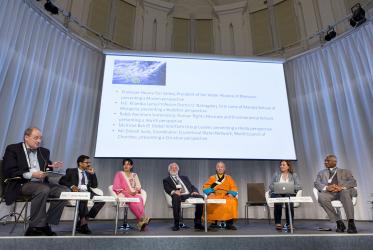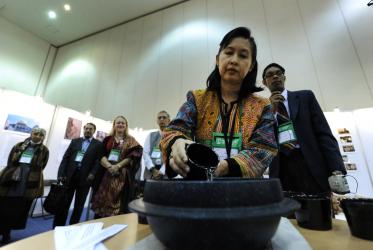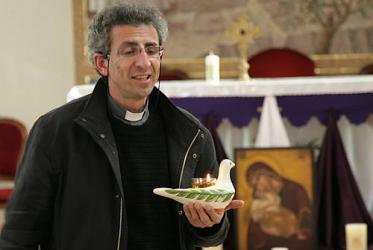Displaying 1 - 19 of 19
Rethinking Ecological Relationships in the Anthropocene era
11 - 13 February 2021
WCC represented at G20 Interfaith forum in Tokyo
13 June 2019
WCC leader offers Steve de Gruchy Memorial Lecture
24 April 2018
Religious leaders highlight significance of water at WCC assembly
04 November 2013
Israeli occupation puts strain on Palestinian Christians
02 April 2009









